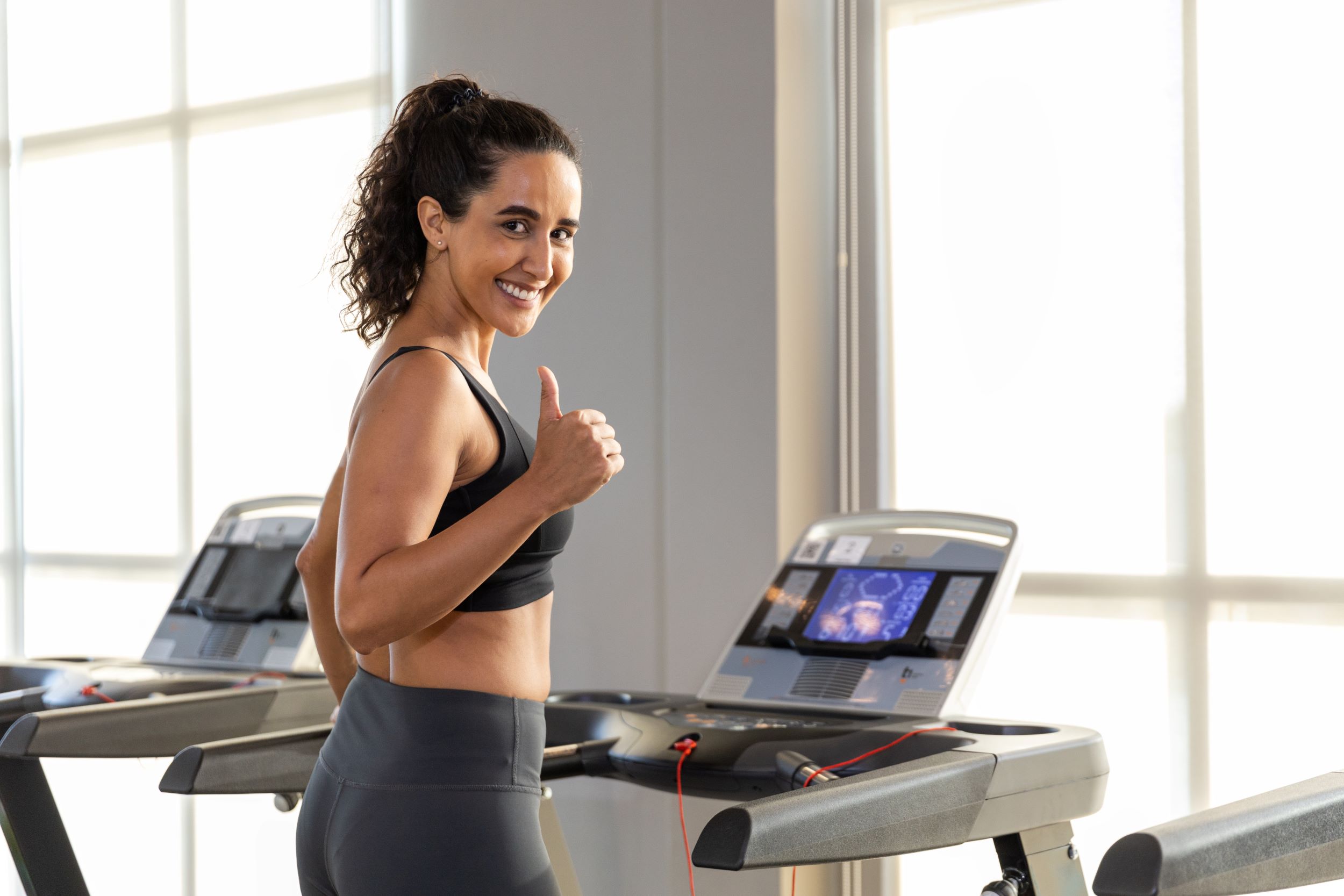Many runners are surprised to find that their bodies can actually gain weight despite their commitment to a rigorous running routine. This can be perplexing, especially when you consider that running is widely recognized as one of the most effective forms of exercise for weight loss. However, there are several factors at play that can contribute to this unexpected phenomenon.
First, muscle gain is a common reason for weight changes. As you run, particularly if you are incorporating strength training into your routine, your body may build muscle. Since muscle tissue is denser than fat, this could lead to an increase in your overall weight, even if your body fat percentage is decreasing.
Additionally, water retention can play a significant role. After a long run, your body may retain water to help repair muscles and replenish glycogen stores, which can temporarily increase your weight. This is often more pronounced in new runners who are adapting to a regular running regimen.
Moreover, dietary changes may also contribute to weight gain. Many runners find themselves hungrier and may inadvertently consume more calories than they burn, leading to unwanted weight gain. It’s essential to maintain a balanced diet that supports your running goals.
To navigate these complexities and embrace a healthier relationship with running, visit our website to learn more and get started today! Click here.
The Role of Muscle Mass in Weight Changes

Understanding the role of muscle mass in weight changes is crucial for anyone who is actively engaging in a running program. As you incorporate running into your fitness routine, your body undergoes various adaptations, one of which is an increase in muscle mass. This increase is particularly noticeable in the legs and core, as these muscle groups are heavily utilized during running.
Muscle mass is denser than fat, which means that it occupies less volume but weighs more. Therefore, even if you are losing fat, you might not see a significant decrease on the scale due to the concurrent gain in muscle. This is why many runners often find themselves puzzled when their weight doesn’t drop as expected.
Additionally, muscle tissue requires more energy to maintain than fat tissue, which can lead to an increase in your resting metabolic rate. This means that even when you are not exercising, your body is burning more calories than it did before, which can ultimately aid in fat loss over time.
It’s essential to recognize that gaining muscle through running is a positive outcome, as it contributes to improved performance, greater endurance, and better overall health. The key is to focus on overall body composition rather than just the number on the scale.
Caloric Intake Versus Caloric Burn

When exploring why does running cause weight gain, it’s vital to understand the relationship between caloric intake and caloric burn. Running is often seen as a straightforward way to burn calories; however, the balance between what you consume and what you expend plays a significant role in your weight management.
Firstly, while running can burn a substantial number of calories, the actual amount varies based on several factors, including body weight, running speed, duration, and terrain. For instance, a person weighing 160 pounds can burn approximately 300 calories during a 30-minute run at a moderate pace. However, if this person compensates for the workout with increased caloric intake—whether by indulging in post-run snacks or larger meals—the caloric deficit may be diminished or even reversed.
Moreover, many runners do not accurately track their caloric intake, leading to unintended overeating. Common pitfalls include misunderstanding portion sizes or underestimating the calories in beverages and snacks. It’s crucial to maintain a balanced approach, where you not only focus on burning calories through running but also monitor your eating habits.
To achieve optimum results, consider keeping a food diary or utilizing apps that can help you log both your caloric intake and expenditure. This awareness can lead to more informed choices and help you stay on track with your fitness goals.
Fluid Retention and Its Impact on Weight
Fluid retention is a phenomenon that can significantly impact your weight, especially for runners. Understanding how it works is essential in addressing the question of why does running cause weight gain. When you engage in regular physical activity, such as running, your body undergoes various physiological changes that may lead to temporary weight fluctuations due to fluid retention.
During and after a run, the body often retains water as a response to increased exertion. This fluid retention can be attributed to several factors:
- Muscle Repair: After intense running sessions, your muscles need time to recover, and this recovery process can cause inflammation, leading to water retention.
- Electrolyte Balance: Running can cause you to lose significant amounts of sodium and potassium through sweat. To maintain balance, your body may hold onto extra water.
- Carbohydrate Storage: When you consume carbohydrates, your body stores them as glycogen in the muscles and liver. For every gram of glycogen stored, about 3 grams of water are also stored. Thus, a higher carb intake can lead to increased water retention.
While fluid retention can momentarily increase your weight, it’s essential to recognize that this is not fat gain. Staying properly hydrated and managing your electrolyte levels can help mitigate this effect. Understanding these aspects of fluid retention allows you to better interpret weight changes, particularly during periods of heavy training or after races.
Psychological Factors Influencing Weight Gain

While physical factors play a significant role in weight changes among runners, psychological factors are equally important yet often overlooked. Understanding these influences is crucial in addressing the question of why does running cause weight gain. Mental and emotional states can affect not only your relationship with food but also your motivation and overall fitness journey.
Here are some key psychological factors that can influence weight gain:
- Stress and Emotional Eating: Running can be a great stress reliever, but for some, it may also lead to emotional eating. When runners feel anxious or overwhelmed, they might turn to food for comfort, leading to unintended weight gain.
- Body Image: As individuals become more involved in running, the focus on body image can intensify. This preoccupation may lead to unhealthy eating habits, where runners either restrict calories too much or overindulge, resulting in weight fluctuations.
- Reward System: After completing a challenging run, many may feel entitled to reward themselves with high-calorie foods or treats, which can contribute to weight gain over time.
- Motivation Levels: Fluctuations in motivation can also affect weight management. If runners experience a dip in motivation, they might find it harder to maintain healthy eating habits and regular exercise, leading to weight gain.
Recognizing the psychological aspects of running and weight management is vital. By developing a balanced mindset towards food and exercise, runners can foster a healthier relationship with their bodies, ultimately aiding in achieving their fitness goals.
Strategies to Manage Weight While Running

Successfully managing weight while embracing the joys of running requires a multifaceted approach. Here are several effective strategies that can help you stay on track:
- Nutrition Awareness: Focus on a balanced diet rich in whole foods. Incorporate plenty of fruits, vegetables, lean proteins, and whole grains into your meals. Paying attention to portion sizes can also help prevent unintended weight gain.
- Hydration: Staying adequately hydrated is essential for runners. Sometimes, our bodies misinterpret thirst as hunger. Drink plenty of water throughout the day, especially before, during, and after your runs.
- Set Realistic Goals: Establish achievable fitness and weight management goals. Instead of drastic weight loss, aim for gradual changes. This helps maintain motivation and prevents feelings of deprivation.
- Cross-Training: Incorporate cross-training activities to keep workouts interesting and to work different muscle groups. This can enhance overall fitness and help prevent injuries, contributing positively to weight management.
- Mindful Eating: Practice mindful eating by paying attention to what you eat, savoring each bite, and recognizing your body’s hunger cues. This can help you avoid overeating and develop a healthier relationship with food.
By implementing these strategies, you can effectively manage your weight while enjoying the benefits of running. Remember, it’s all about finding a balance that works for you.
Visit our website to learn more and get started today! Click here.


